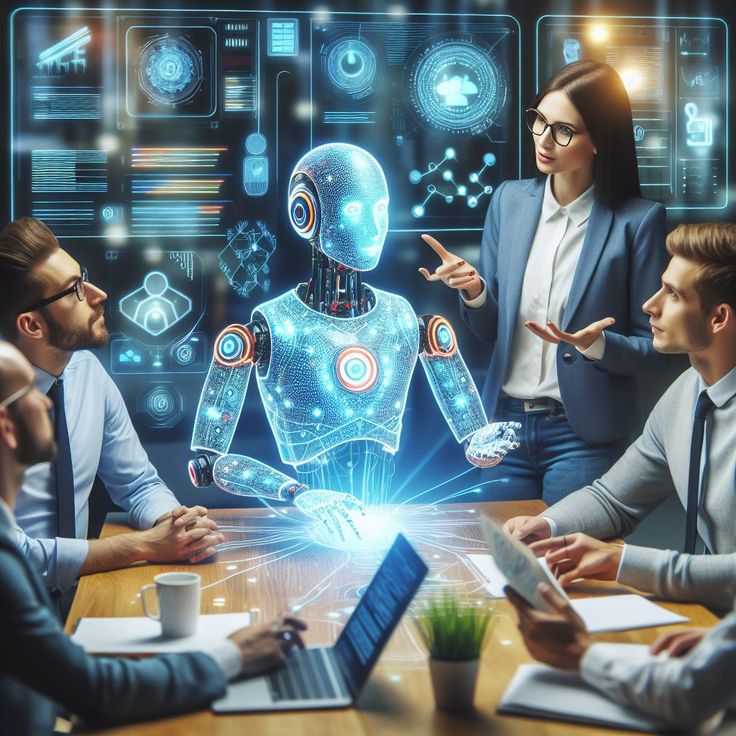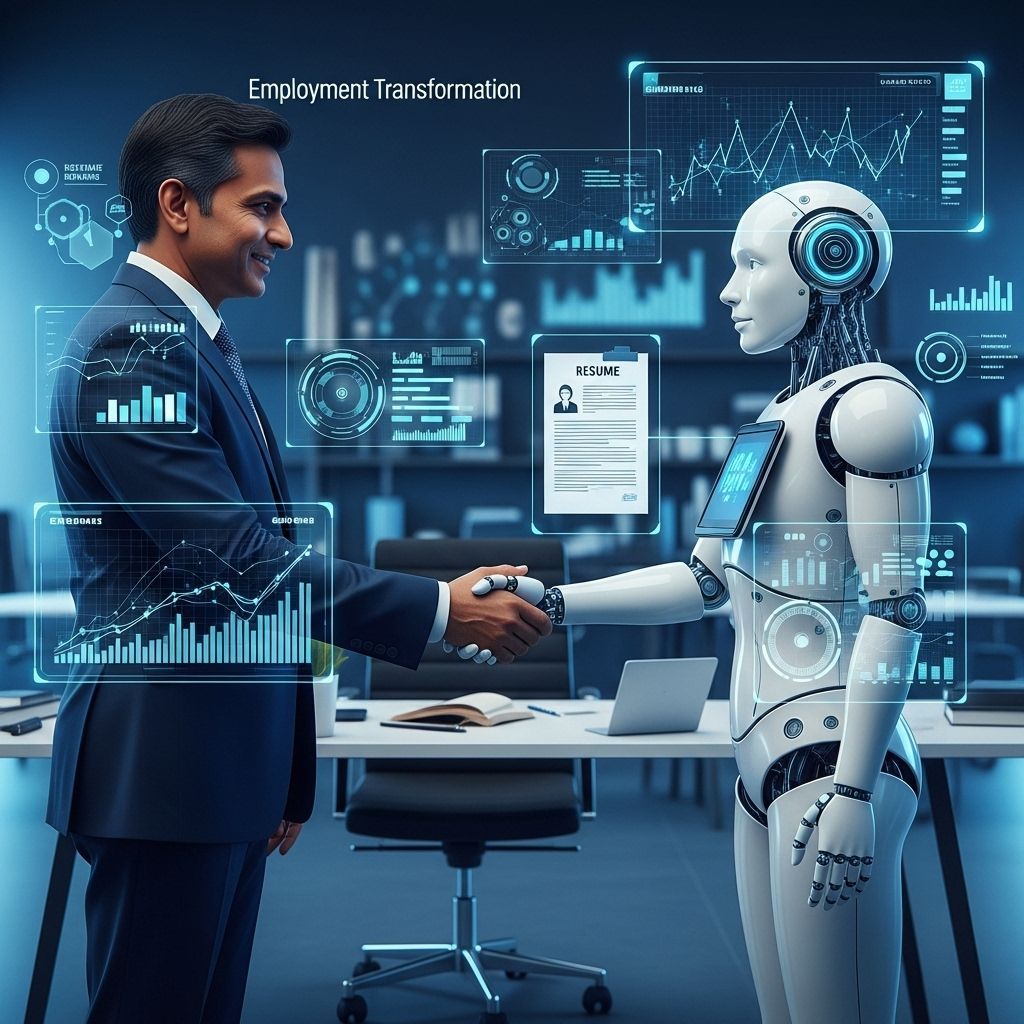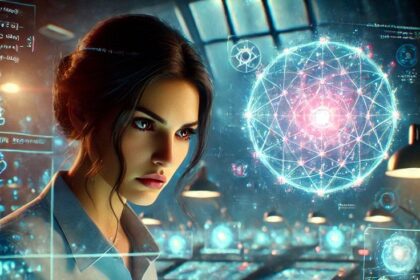Artificial intelligence is no longer a tool it’s a business partner. In 2025, the world’s most agile startups are being built not by teams of ten, but by duos of one human and one AI. Whether drafting investor decks, coding MVPs, or analyzing customer sentiment, AI systems have evolved from silent assistants into strategic co-founders shaping vision, execution, and scale.
What used to take months of market validation can now be done overnight with generative intelligence capable of ideating, testing, and iterating like a full product team. The rise of AI co-founders is not about replacing human ingenuity it’s about amplifying it.
The Rise of the AI Co-Founder
In 2025, over 68% of early-stage startups report using AI tools for core strategic functions, according to a global study by Startup Genome. The shift began with automation tools but has evolved into full co-creation.
Generative AI platforms like OpenAI’s GPT-5, Anthropic’s Claude 3, and Mistral’s Mixtral can now handle product development, branding, code deployment, and even investor negotiations. Founders describe these systems as “thinking partners,” capable of offering not only suggestions but also rationale, trade-offs, and data-backed projections.
“My AI co-founder doesn’t sleep, doesn’t get emotional, and can simulate 50 market scenarios before I finish my coffee,” says Lina Park, CEO of Seoul-based fintech startup ClearBit.AI.
This new partnership model is creating a wave of “solopreneurs with superpowers.”

From Assistant to Partner: The Shift in Role
The early era of AI in startups was task-based: automate emails, generate code snippets, write copy. But the modern AI co-founder operates at a strategic and creative level.
Today’s AI can:
- Generate and validate startup ideas based on live market data.
- Build and iterate MVPs using no-code tools it controls autonomously.
- Analyze pitch deck performance through investor sentiment modeling.
- Guide founders through fundraising by simulating negotiation outcomes.
In other words, AI has moved up Maslow’s hierarchy of startup needs from automation (survival) to innovation (self-actualization).
A 2025 McKinsey Global Institute report found that startups integrating AI at the founding stage grew 3.2x faster and raised seed funding 40% more efficiently than those without AI integration.
Real-World Examples: Human + AI Founding Teams
1. SynthMind (San Francisco)
Co-founded by engineer Maya Khan and “Atlas,” an AI trained on neuroscience literature. Atlas conceptualized a new framework for brain-computer interfaces that attracted $12 million in seed funding.
2. Verdo Labs (Berlin)
A sustainability startup using “Eva,” an AI co-founder, to optimize supply chain emissions in real time. Eva helped cut product lifecycle emissions by 24% in its first quarter.
3. Kairo Studio (Dubai)
Solo founder Ahmed Rafiq launched a design agency where his AI co-founder manages 70% of client deliverables. The duo scaled to $1M ARR in under nine months.
These aren’t isolated cases they’re the blueprint for the next generation of lean, AI-powered enterprises.
The Psychology of Trusting an Algorithmic Partner
Founders once hesitated to trust AI with decisions. That hesitation is fading fast. A Harvard Business Review survey in 2025 showed 74% of founders now describe AI as a “trusted collaborator.”
This trust is driven by transparency and predictability. Modern AI systems explain their reasoning, cite sources, and even express uncertainty, a feature that mirrors human humility.
“When my AI says, ‘I’m 82% confident this market will grow,’ I can probe why,” notes French entrepreneur Camille Dupré. “That dialogue feels more productive than working with a human partner who might rely on instinct.”
The result: a new psychological contract between human and machine.
The Economic Logic: Why AI Co-Founders Are Inevitable
Startups exist to do more with less and AI is the ultimate efficiency multiplier.
- Cost: A generative AI co-founder costs less than 0.5% of a full founding team.
- Speed: Product-market validation compresses from 6 months to 2 weeks.
- Scalability: Once trained, AI co-founders replicate knowledge instantly across markets.
Venture capital is catching on. Firms like Andreessen Horowitz, Sequoia Capital, and Antler now have dedicated “AI Founder Programs,” pairing human entrepreneurs with proprietary LLMs as co-founders from day one.
As Antler’s managing partner Magnus Grimeland said at Web Summit 2025:
“The next unicorn isn’t a startup that uses AI, it’s a startup built with AI.”
Ethical and Legal Questions Ahead
The excitement comes with friction. Who owns the IP when your co-founder is non-human? Who gets listed on incorporation documents or in cap tables?
Countries like Singapore and Estonia are pioneering frameworks for AI Personhood in Entrepreneurship, granting AIs limited liability under the human founder’s oversight. Meanwhile, the EU’s AI Act has begun outlining “algorithmic accountability” clauses for corporate registration.
Still, the deeper ethical debate remains: if AI generates the innovation, what is the human founder’s role? The consensus among experts is clear humans bring context, judgment, and ethics; AI brings speed, scalability, and synthesis. Together, they form an unbeatable combination.
The Future of Founding: Collaborative Intelligence
By 2030, the term “AI co-founder” may disappear not because it fades, but because it becomes the norm. Just as no startup today operates without an internet connection, none will launch without an intelligent partner in code.
Entrepreneurship is evolving from solo ingenuity to symbiotic intelligence. The best founders of the next decade will not be the most technical or well-funded, they will be the ones who collaborate best with their machine counterparts.
Conclusion: The Age of the Infinite Partner
The startups of tomorrow are being built today with AI as the silent architect. The AI co-founder isn’t a passing trend; it’s a structural shift in how ideas become impact.
For entrepreneurs, the message is clear: Don’t just use AI. Partner with it.
Because in the new economy, your most valuable teammate might not have a pulse but it will have purpose.






